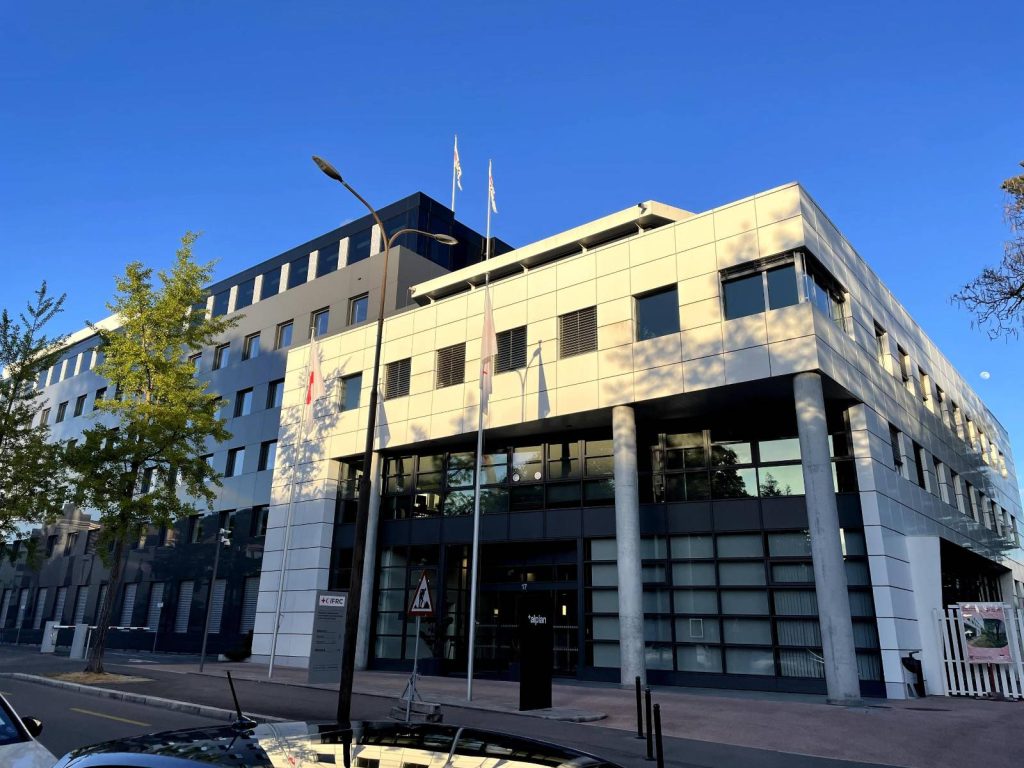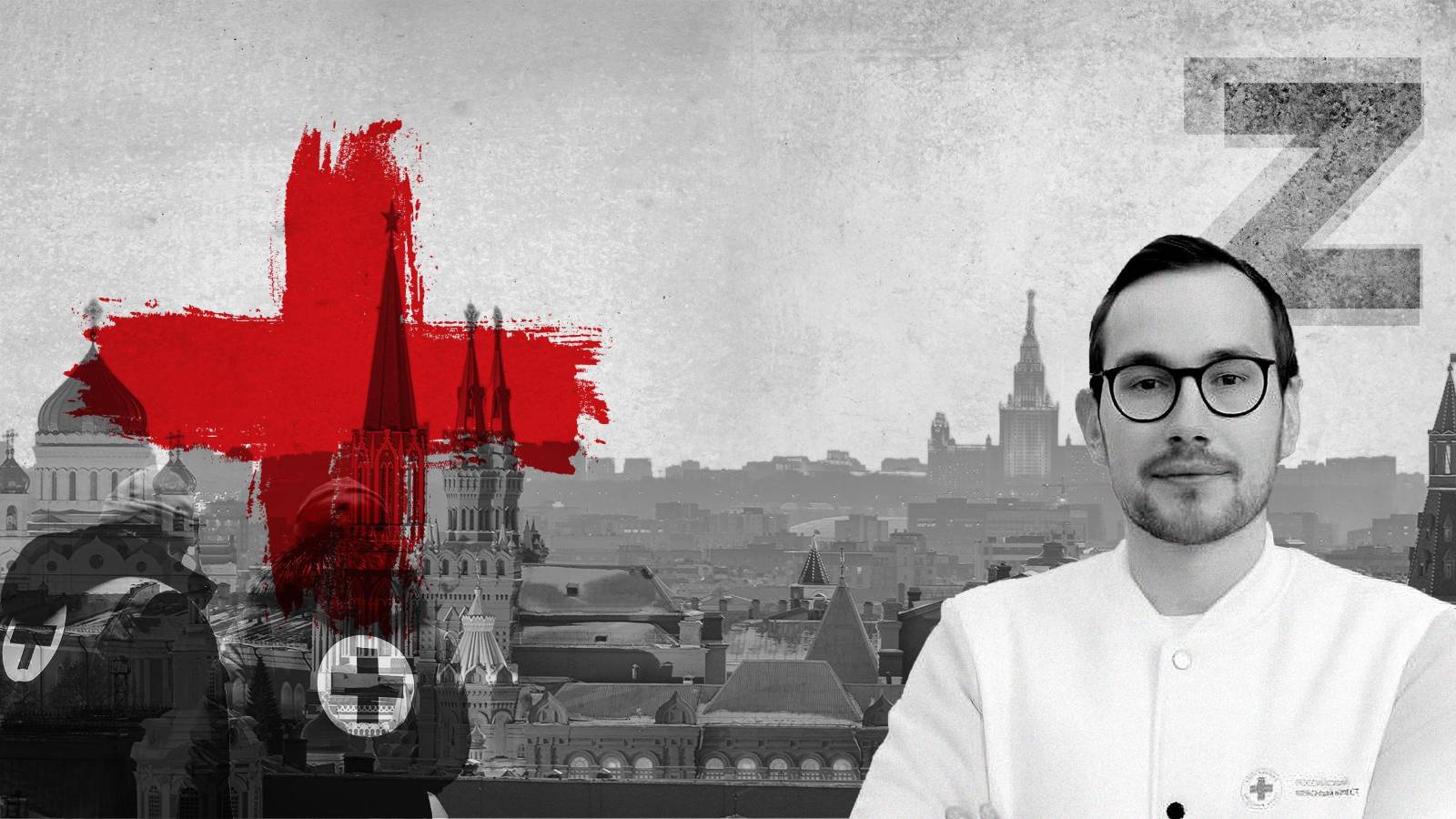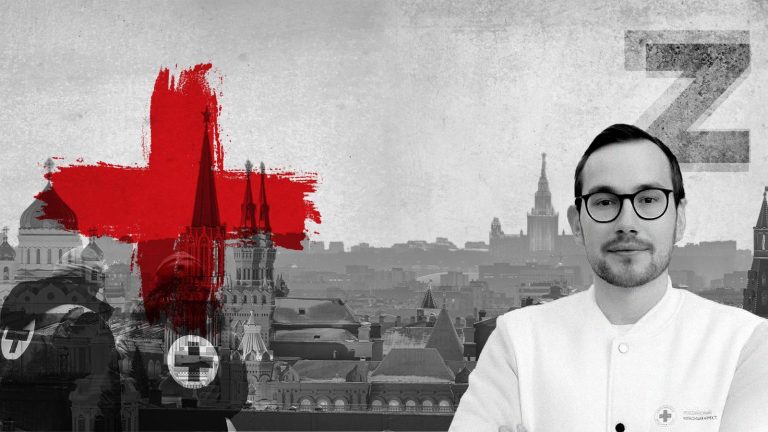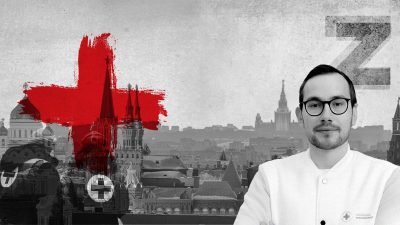Frederik Obermaier (Paper Trail Media)
Holger Roonemaa (Delfi Estonia)
Illustration: Mart Nigola (Delfi Estonia) 2024-04-22
Frederik Obermaier (Paper Trail Media)
Holger Roonemaa (Delfi Estonia)
Illustration: Mart Nigola (Delfi Estonia) 2024-04-22
The governing board of the International Federation of the Red Cross (IFRC) will meet this week for a four day board meeting, during which it will discuss the Russian national organization’s relationship with the Kremlin — and whether to launch a formal investigation that could result in the suspension of the Russian organization’s membership.
Meanwhile, Ukraine is losing patience with the inaction of the IFRC. “We, Ukrainians, don’t have a lot of time. Every day the IFRC fails to act means one more day the organization supports the Russian aggression against my homeland. I am desperate,” said Dmytro Lubinets, the Ukrainian Parliament Commissioner for Human Rights, in a joint interview with VSquare, Expressen (Sweden), Spiegel (Germany), Paper Trail Media (Germany), Standard (Austria) and Delfi Estonia.
Lubinets sent a formal appeal to the IFRC in mid-March after VSquare and our international partners exposed the Russian Red Cross’s (RRC) collaboration with the Putin regime in the Kremlin Leaks series. This cooperation includes supporting the Russian military and collecting donations for soldiers; cooperation in the organization of military camps for children; and entering into formal agreements with a number of organizations that have been sanctioned by the European Union, the United States and Ukraine for, among other things, their involvement in the deportation of Ukrainian children.
In the petition, Lubinets demanded that the IFRC condemn the RRC’s activities, conduct a transparent investigation, suspend their membership in the international movement for the time being and, if our revelations are true, expel the RRC from the organization. To date, the commissioner has received no response from the IFRC other than confirmation that his appeal was received.
(The IFRC’s press service said that the organization has been in contact with Lubinets’s office since 2022, and that there will be further communication on his latest appeal when they have further information on the matter at hand.)
In the wake of the Kremlin Leaks revelations, the IFRC said it would “review” the articles’ claims, but has not yet launched a formal investigation, which – according to the organization’s own statutes – should be carried out by the Compliance and Mediation Committee.
The IFRC has also consistently failed to respond to substantive queries from the press, but according to documents obtained through our public information requests, it held an emergency meeting at its headquarters in Geneva on March 1, four days after the first revelations were published. It was attended by, among others, representatives of the Red Cross movement’s major donors.

IFRC headquarters in Geneva. Photo: Mattias Carlsson / Expressen
At the closed-door meeting, IFRC Chief of Staff Christopher Rassi pledged that the activities of the Russian Red Cross would be thoroughly investigated and that, if the matter came before the organization’s board, Russia would not be allowed to participate in deliberations. (In summer 2022, already after the full-scale invasion, Russian Red Cross President Pavel Savchuk was elected to the IFRC’s 20-member board.)
If the IFRC opens a formal investigation, RRC President Pavel Savchuk will have to step down from the IFRC board during the proceedings, according to a memo viewed by VSquare prepared by Swedish diplomats who attended the meeting. So far, the “review,”which has been ongoing for nearly six weeks, has been led by the organization’s management. According to diplomatic sources with whom we spoke, the review is now in its final stage and findings will be presented at a board meeting later this week.
The Russian Red Cross’s links with the Putin regime:
- Documents leaked from the Russian presidential administration show that the Kremlin directly funds the Russian Red Cross, which was tasked with replacing the International Committee of the Red Cross (ICRC) in the occupied Ukrainian territories.
- The RRC President Pavel Savchuk was, at least until the publication of our first article, a member of the leadership of the All-Russia People’s Front (ONF), a patriotic organization led by Putin and actively supportive of the war. ONF holds the registered trademark for the notorious “Z” symbol.
- Pavel Savchuk has also signed cooperation agreements with the internationally sanctioned organization Defenders of the Fatherland, which supports the war in Ukraine and is led by a relative of Vladimir Putin.
- The RRC cooperates with the movement “We Are Together” (often referred to in Russian as #МыВместе), which supports the war and raises money and donations, including arms and personal protection equipment, for soldiers.
- In January of this year, Savchuk signed a cooperation agreement on behalf of the RRC with the Artek children’s camp in occupied Crimea. It was signed by Konstantin Fedorenko on behalf of Artek. Fedorenko is internationally sanctioned for having helped deport Ukrainian children and for having organized patriotic Russian re-education camps for them (Artek is also sanctioned).
- The RRC regularly participates in military-patriotic training courses for children. In these courses, children receive weapons and military training. Red Cross workers pose with children and weapons.
- Pavel Savchuk, on behalf of the RRC, presented a diploma to the Russian arms factory Avangard, which produces rockets used to bomb civilian targets in Ukraine, and posed for a photo with a representative of the factory. The United Aircraft Corporation, a member of the state-owned Rostec Group, which produces fighter aircraft, also received a diploma from the RRC.
- At least two members of the RRC board have openly expressed support for Russia’s war against Ukraine and one of them even called Ukrainians “Nazis.”
“This is a complex matter that is being discussed at the highest level of the organization,” the IFRC press service said in response to our query. The organization’s 20-member governing board meeting starts in Geneva, Switzerland today and is set to last for four days.
“A thorough review is in process but this takes time. Our teams are still working and ensuring we have gathered the necessary information to directly address these claims,” the IFRC said.
Last week, Christopher Rassi also met with diplomats to brief them on the investigation’s progress. During a meeting with the Swedish ambassador, he described how they worked nonstop over the last several weeks on the matter while keeping the board and the president of IFRC informed.
The IFRC does not have to look far for a precedent. Last December, the Belarusian Red Cross was suspended from the organization after it emerged that its representatives had traveled with Russian units to occupied territories in Ukraine, wearing Russia’s notorious Z symbol on their shoulders, and that its leader had spoken publicly about how they were transporting Ukrainian children to Belarus.
Dmytro Lubinets said the Red Cross’s silence so far is part of a larger pattern that began as early as 2014 during the occupation of Crimea. At that time, the RRC occupied the buildings and office space left behind by the Ukrainian Red Cross in Crimea and also took possession of Ukrainian cars and computer equipment, according to Lubinets.
“Russia does not allow [the International Red Cross] access to Ukrainian prisoners of war. And I haven’t seen any reaction from the Red Cross during this time. They hide behind the shield of neutrality. This is crazy,” Lubinets said.
Lubinets said that, in his view, the IFRC could not conduct an independent investigation as long as a representative of the Russian organization sits on its board. “But I have not given up hope. The international Red Cross community can still show that violation of the principles of the Red Cross is not acceptable. They can prove that the IFRC is not fully under the control of the Russian Federation.”
“Kremlin Leaks” is a series of articles based on documents leaked from the Russian presidential administration’s so-called domestic political bloc, led by Sergey Kiriyenko. In the series’ opening installment, we detailed the Kremlin’s efforts to secure Vladimir Putin’s victory in the upcoming presidential election through extensive propaganda funding and its engagement in an information war against its own citizens. Later we revealed how the Red Cross became part of the Russian propaganda machine and is involved in “re-educating” children that Russia has deported from occupied Ukraine. Finally, we described how Putin’s regime is building AI surveillance operations.
The leaked files, the most recent of which date back to December 2023, were obtained by Estonia’s Delfi. These documents were shared for joint investigation with VSquare and Frontstory.pl (Poland), Expressen (Sweden), Meduza and iStories (independent Russian outlets), Paper Trail Media, Der Spiegel and ZDF (Germany), Der Standard (Austria), Tamedia publications (Switzerland), YLE (Finland), and The Guardian (UK).
Subscribe to Goulash, our original VSquare newsletter that delivers the best investigative journalism from Central Europe straight to your inbox!
Head of the investigative desk at Delfi Estonia, Holger Roonemaa has extensively investigated topics related to national security, including Russia’s espionage, interference, and influence operations in Estonia and the wider region. He is a member of the International Consortium on Investigative Journalists (ICIJ). Estonia’s national media association named him the journalist of the year in 2020 and 2021.







